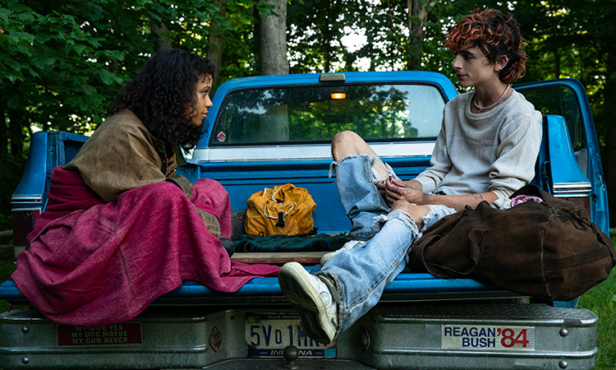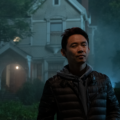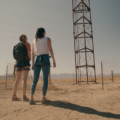Director Luca Guadagnino ‘s 2017 queer coming-of-age, Call Me By Your Name, launched Timothée Chalamet’s career into the big time. It’s a tantalising romance pulsating with confusion and aching desire that tacitly navigates love and liberation and has a lot in common with his latest film, Bones and All.
The film reunites the director with Chalamet who stars as cannibal drifter Lee who falls for another ‘Eater’ Maren (Taylor Russell) who is on the search for the mother who abandoned her. It is Guadagnino‘s first US-set film, and in terms of genre is difficult to pin down, as it toys with the road-trip movie, romance, coming-of-age and horror.
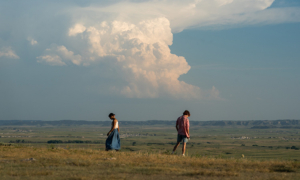
The gargantuan task of adapting Camille DeAngeli’s beloved award-winning novel was given to Guadagnino‘s friend and regular collaborator David Kajganich (Suspiria) by producer Theresa Park (After Yang) who optioned the rights for the book.
Park became completely enamoured with the book while reading it on a trip to England for the London Book Fair where she says she “finished the book with a gasp”. She knew it would make a great film, but the blending of genres would be difficult to pull off, she explains: “Because it’s so specific and unusual… it is literary and has many layers and themes, and it is also a larger metaphor for many things. I needed someone who was sophisticated and artful enough to do that, and yet could handle the genre aspect of it too.”
Kajganich was the only person she approached, six-and-a-half-years ago, but originally Guadagnino was not on the table to direct. He came on board after Antonio Campos dropped out. Kajganich sent him the screenplay which he finished writing over the COVID-19 lockdown, and within a couple of weeks Guadagnino was in.
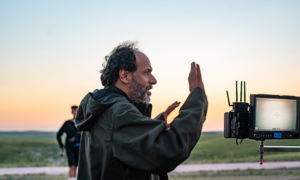
One of the major differences between the book and screenplay is the period setting. Kajganich moved it from the 1990s to the late 1980s and Reagan-era America during the AIDS crisis; a time when inaction on medical measures had a devastating impact on the queer community.
It was also the time when he was personally coming-of-age in Midwest America, and Kajganich explains his reasoning for the change in period setting, saying, “The 1980s was such a different era to the 1990s in America. Partly because there were so many people who had been rendered invisible by various institutions and systems and it was sort of easier in the 1980s if someone needed to be invisible to do that. I sat pretty uncomfortably in my skin in my teenage years because I was gay in rural America in the 1980s. I tended to be a quieter person like Maren because it made me feel like I was less visible. I was more on the shy side.”
The character development was particularly important to Park and Kajganich. “I’m really drawn to the characters and what makes them unique,” says Park. “Sometimes what makes them unique is their juxtaposition with a particular genre, so we have this incredibly tragic love story in the heart of a road-trip, and also something that is part of the horror genre.”
Park explains that Chalamet also had a lot of input on how Lee was portrayed pre-shooting, saying: “He really made some adjustments to Lee’s character that differ from the book, and his suggestions ended up making the story more poignant.”
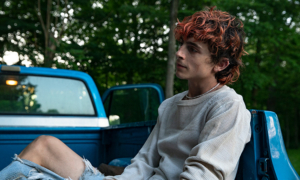
The road-trip movie is generally associated with searching, discovery and some sort of transformation, and Kajganich took inspiration from Two-Lane Blacktop, Badlands and Alice in the Cities, saying he watched those films “for insight on how road movies operate”.
“The reason why people take road trips is it is a declaration of your autonomy,” he continues. “It is a declaration of your intention to get in a car and start driving somewhere, knowing that you will be able to control so little of what’s coming. I find it to be one of the most exciting journeys of self-expression because you’re willing to admit that you’re happy to be out of control.”
For the horror aspect, Kajganich says: “What was important, was with the cannibalism, was not to fetishize it and not to build too much of a mythology about it because that would’ve taken time that we would have all rather spent on the characters.” And on the romance, he explains that, “I didn’t want to over-sensationalise love in the film. I thought if it was going to work, it would be because it wasn’t operatic in its structure. It was just tiny little movements towards one another and the situation they’re in. They’re both in this extreme situation and as soon as they start being protective of one another I think that was enough.
“The actors obviously played it in a very naturalistic way, and we were trying to avoid the trappings of a love story, thinking that if we avoided those archetypes we would have a more convincing love story at the centre of the film.”
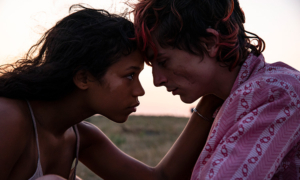
There are so many coming-of-age films, but Bones And All sets itself apart as it weaves in big themes on independence and freedom on both a personal and political level. When we ask Kajganich if people or society ever stop coming-of-age, he pauses… “I feel like after a certain point that’s a choice,” he says. “I think that some people are quite relieved to stop their own growth. Sometimes people can stop their own growth for numerous reasons like trauma or disappointment… but I think a lot of people have stopped their growth because of a tribalistic sense of wanting to be loyal to a political set of ideas, and that makes me worried. Luca was excited to talk to people where we shot the film, about what their experience had been in the 1980s. Unfortunately, in a lot of cases it’s not so different. I don’t want to be too cynical about it because I think hope is the one tool we have and we should hold on to that.”
Bones and All is in cinemas 23rd November
